As China’s National Day holidays approached, the ELFA China team crafted a series of home activities for our ELFA children to spend their week-long break fruitfully. This series encompasses seven different themes so children can spend each day focusing on one aspect of their development. These hands-on activities help children to deepen their understanding by transporting their classroom to different settings, allowing for many opportunities for growth and incidental learning.
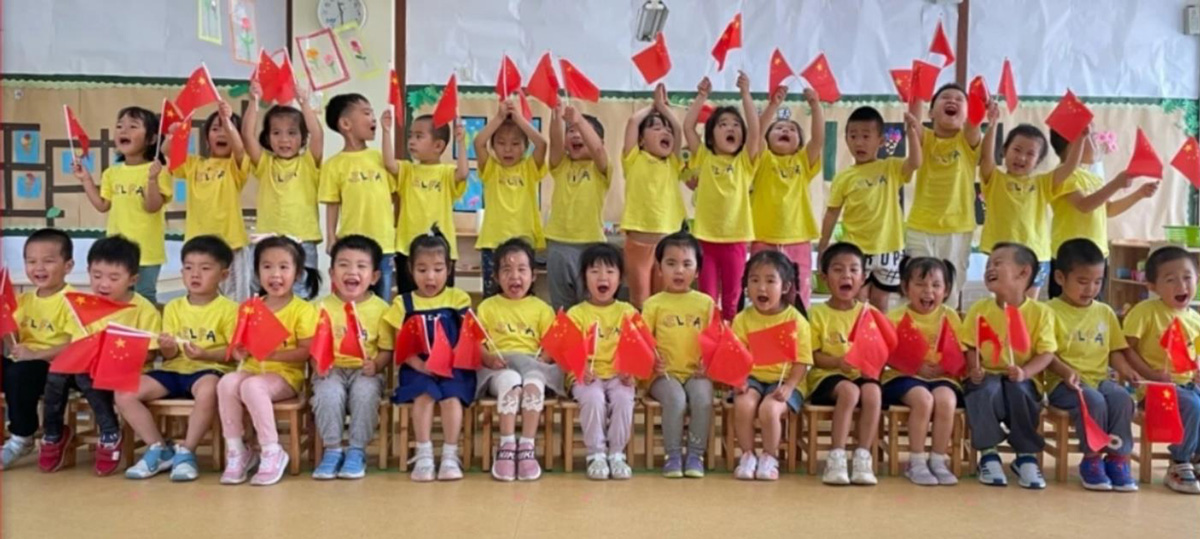
Wishing China a Happy 72nd Birthday!
1. Build Gross and Fine Motor Skills

Our children enjoying some outdoors sports time.
Children grow muscles through gross motor activities and gain confidence in coordination through fine motor activities. They also learn to manipulate objects with dexterity.
Jumping over a skipping rope laid on the ground or simply walking on a line drawn with chalk can be an enjoyable gross motor activity. Children can start by learning to balance through walking in straight lines drawn on the floor, and eventually progress onto curved lines and even zig-zag lines. For more enjoyment, you can turn on the music, and both mum and dad can join in the fun too!
Writing on the sand, salt, or uncooked rice can help children develop fine motor skills and be equipped with the right pre-writing skills. Dough play and weaving a string of yarn through holes punched into cardboard can also train children’s fine motor skills. These materials are readily available and can be reused over and over again.
2. Discovery of the World
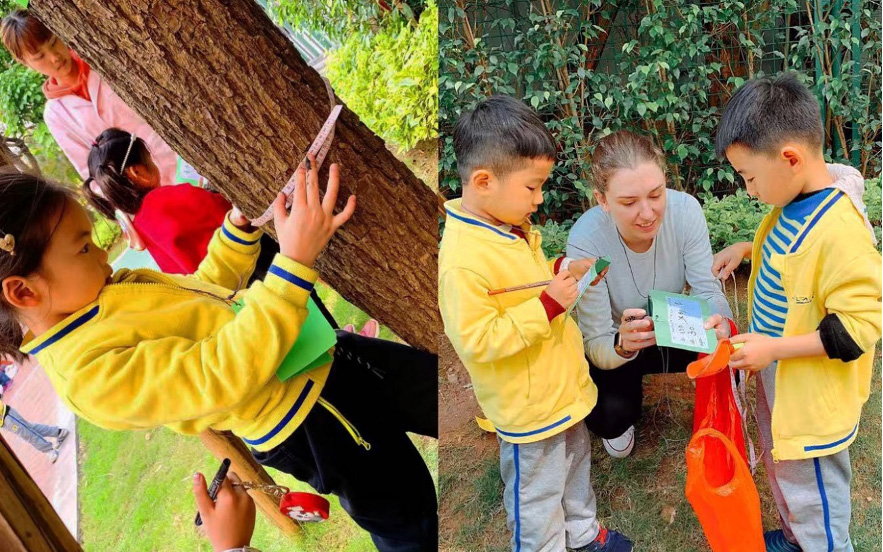
Exploring and learning about nature.
Nothing beats learning about nature from nature itself. Through experiential learning, children develop a love for nature and the living creatures around them. They grow to be more observant and can notice similarities and differences in their surroundings.
Take a mid-week break from the screen and go for a short walk with your little one to explore nature! Be mindful to observe the different types of leaves and plants during the stroll. You can also sharpen your child’s observation skills by getting them to sight different living creatures or identify the sounds of various birds and insects. Remember to get the young ones to bring along a magnifying glass and notebook to journal their findings!
3. Joy of Independence
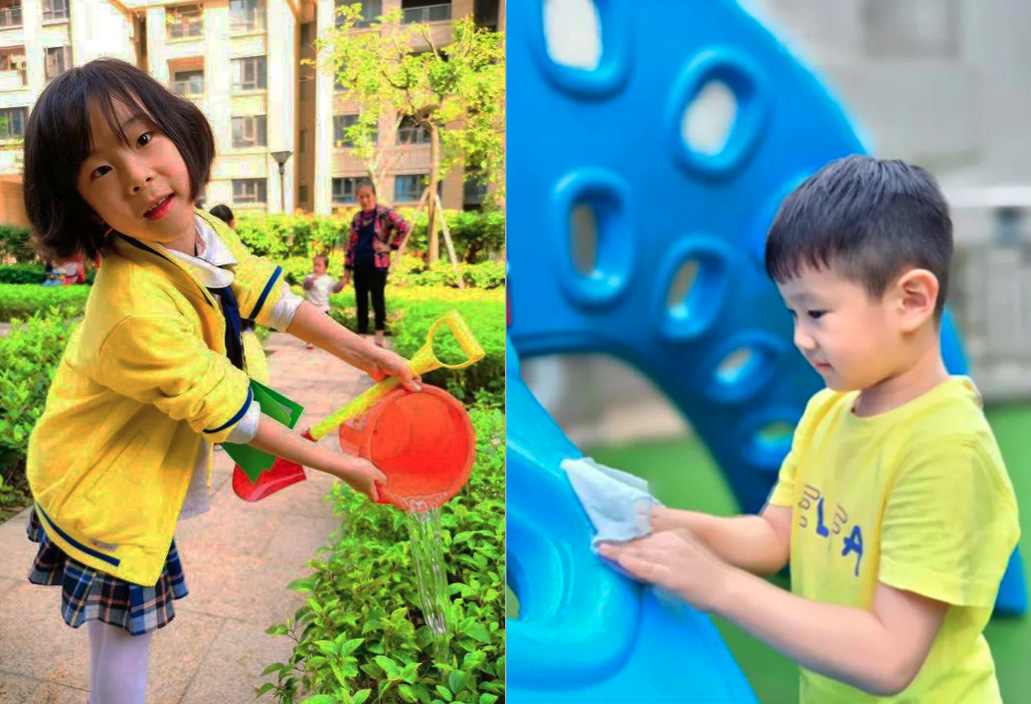
Exploring and learning about nature.
Helping others is one of life’s virtues – it’s better to give than to receive! For children, cultivating such habits starts from fostering their sense of independence and providing an environment where giving comes naturally and easily.
teeth, dressing themselves are all things they can progressively start to own and perform independently. Similarly, they can start to take part in simple household chores like making their beds, cleaning up their room, watering the household plants. You can even make a game out of it and raise their interest!
4. Love for Language & Literacy
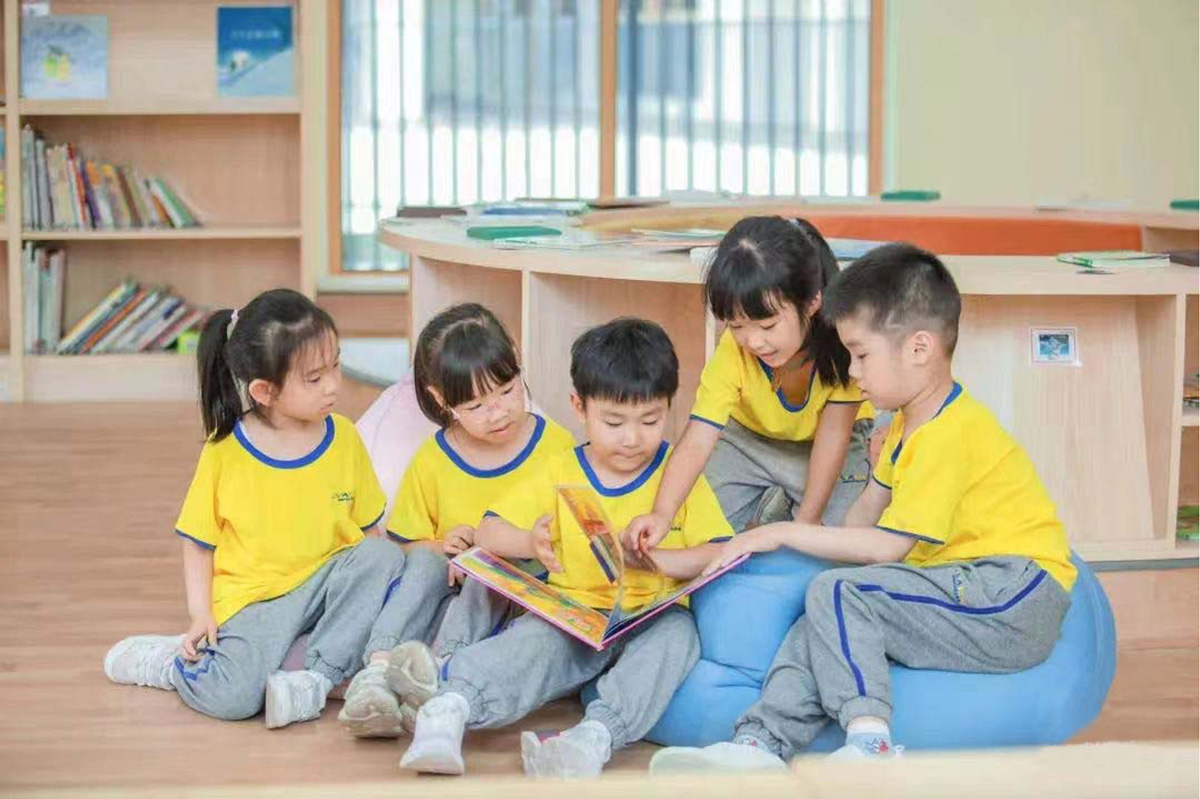
The children are absorbed in their books.
Develop your child’s speech ability and a love for reading. Margaret Fuller said: ‘Today a reader, tomorrow a leader’. Let us building up the leaders of tomorrow starting today!
How beautiful it is to see a child immersed in the world of stories! Surround your child with books of different genres. You can vary between fiction and non-fiction, hardcover and soft covers, pictorial and books with prints of various sizes.
Have a print-rich environment at home by labelling your furniture and household furnishings. Make the labels detachable and turn them into a fun word matching game!
5. Go Social and Emotional
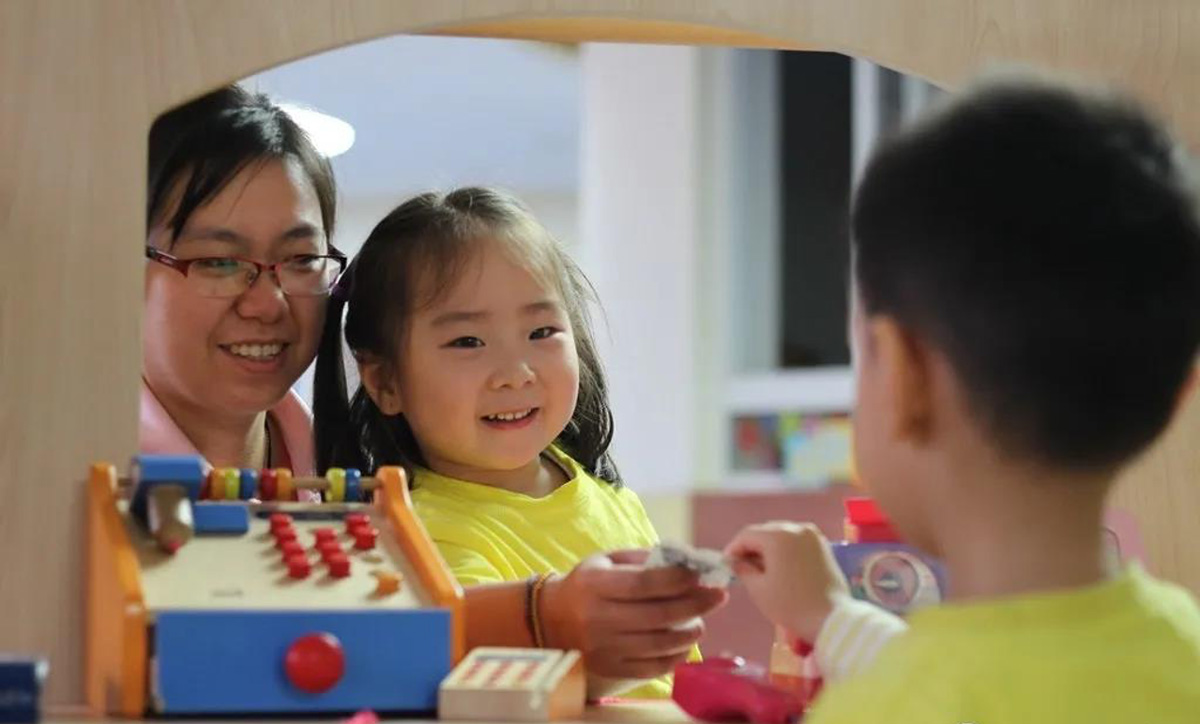
Learning to interact with one another under the guidance of our teachers.
Like all human, social and emotional development in a child is an important aspect that should not be neglected. Children need to be given love and attention from adults and people around them and they will learn to reciprocate and be kind to others around them.
If your child does not have a sibling, one way to teach them about expressing their feelings could be through puppet play. Using a puppet to talk about feelings can help children to make connections and understand that it is alright for people to feel different emotions. You can make use of different puppet characters to guide children to respond and express themselves. By facilitating the play through asking open-ended questions, you can draw responses from your child. Simultaneously, you will have a good time understanding your child’s personality and preferences!
6. Get Creative & Hone Aesthetic Expression
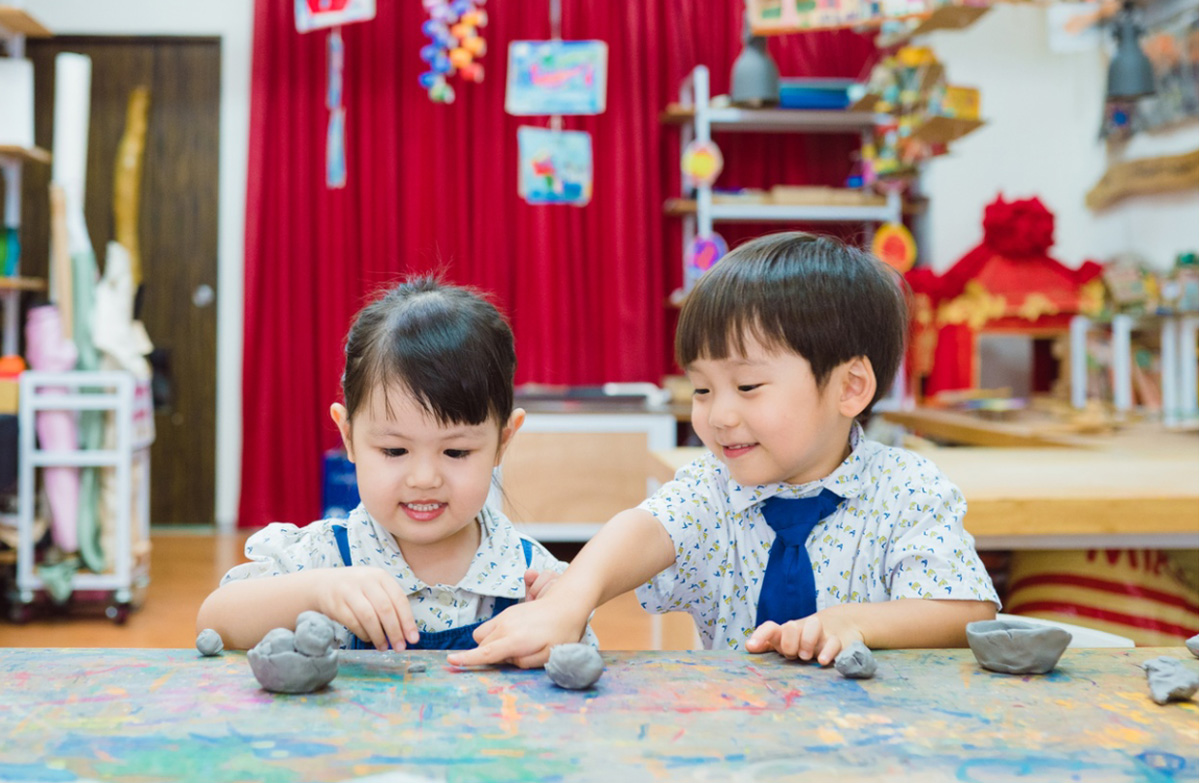
Learning how to create art with play dough.
Solely absorbing information is half the learning process, the other is through expressing creativity and ideas. Getting children to express themselves creatively and hone their aesthetic sense helps stimulate the right brain. More often than not, a child’s masterpiece is a creation out of their imagination. There is no right or wrong in art.
Consider building a creative corner where art materials are within easy reach of your child. Gather reusable materials in the corner and let it be an area where he/she can revisit. Make the space comfortable by ensuring furnitures are at the right height so your child can easily organise and utilise the materials. Kickstart the art workshop by discussing the project ideas with your child and decide on the scale and scope of the project! Remember to display their creations to boost their confidence and esteem!
7. Let Your Child Decide

Self-improvement is important for the children to express themselves.
Directing for six days a week can be exhausting, so why not have your child lead for a day? Just relax and enjoy the day through listening to your child as he/she identifies his own interest. Seize the day to recognise and celebrate your child’s interest or strength.
You might learn that your child is interested in activities like cooking, baking, making a movie, or simply drawing. Never belittle their interests as they could turn into hobbies and later passions in life! It could build their confidence into pursuing their aspirations.
Gradually, parents can plan for progressions in the activities and level up the tasks steadily, at the same time making sure the activities and process are enjoyable for your young ones.

